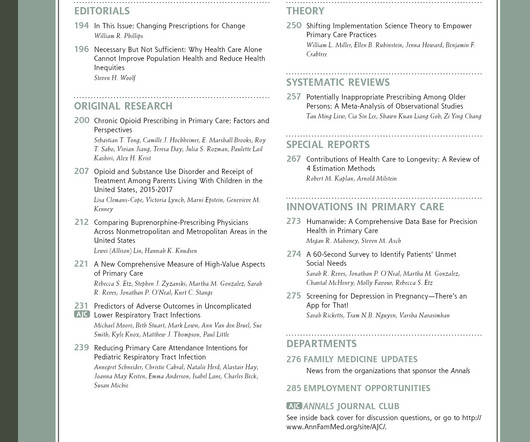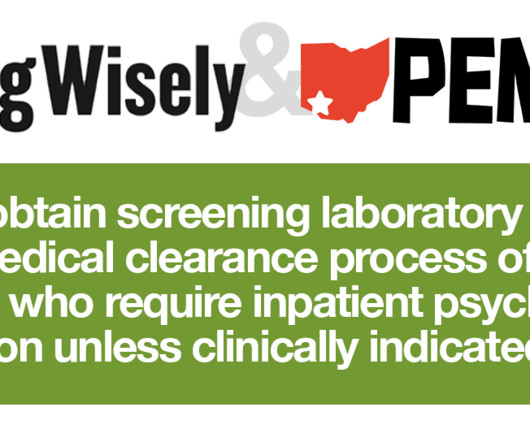Drinking the Disease: Arsenic Exposure in Well Water from the Perspective of Patients and Providers [Social determinants and vulnerable populations]
Annals of Family Medicine
NOVEMBER 20, 2024
Despite recommendations for routine screening, this is rarely done. This is the first study elucidating clinician knowledge on the risk and symptomatic presentation of patient arsenic exposure from well water. Arsenic cannot be seen, tasted, or smelled. Dataset: Questionnaires for clinicians and patients via emailed surveys.
















Let's personalize your content